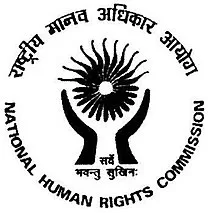Functions of the Commission (Section 12):
The NHRC is vested with various functions, which include:
(a) Inquiry into Complaints: The Commission has the authority to inquire into complaints of:
- Violation of human rights or abetment thereof.
- Negligence in the prevention of such violations by a public servant.
The complaints can be initiated suo motu (on its own), through a petition presented by a victim or someone on their behalf, or on the direction or order of any court.
(b) Intervention in Legal Proceedings: The NHRC can intervene in legal proceedings that involve allegations of human rights violations, but only with the approval of the court concerned.
(c) Visiting Institutions: The Commission has the power to visit and inspect places such as jails and other institutions where individuals are detained for various purposes (treatment, reformation, protection) to study the living conditions of the inmates and make recommendations to the government.
(d) Review of Safeguards: The NHRC can review the safeguards provided by the Constitution or existing laws for the protection of human rights and recommend measures for their effective implementation.
(e) Addressing Factors Inhibiting Human Rights: The Commission can review factors, including acts of terrorism, that inhibit the enjoyment of human rights and recommend appropriate remedial measures.
(f) Study of International Instruments: The NHRC can study treaties and other international instruments on human rights and make recommendations for their effective implementation.
(g) Promoting Research: It can undertake and promote research in the field of human rights.
(h) Spreading Human Rights Literacy: The Commission is responsible for spreading human rights literacy among different sections of society and promoting awareness of the available safeguards through various means such as publications, media, seminars, and other methods.
(i) Encouraging NGOs: The NHRC encourages the efforts of non-governmental organizations (NGOs) and institutions working in the field of human rights.
(j) Other Functions: The Commission can perform any other functions it deems necessary for the promotion of human rights.
Powers relating to inquiries (Section 13):
The NHRC, while inquiring into complaints, has several powers similar to those of a Civil Court, including:
- Summoning and enforcing the attendance of witnesses.
- Receiving evidence on affidavits.
- Issuing commissions for the examination of witnesses or documents.
- Requisitioning public records or copies.
- Requiring individuals to furnish information.
- Entering buildings or places to seize relevant documents.
- Forwarding cases to a Magistrate for criminal offenses committed in its presence.
Being deemed a Civil Court for certain purposes, including sections 193 and 228 of the Indian Penal Code.
13(6) Transfer of Complaints: The Commission, when it considers it necessary or expedient, may transfer a complaint filed or pending before it to the State Commission of the State from which the complaint arises, for disposal in accordance with the provisions of the Act. However, this transfer can only occur if the State Commission has jurisdiction over the complaint.
13(7) Disposal by State Commission: Any complaint transferred under sub-section (6) shall be dealt with and disposed of by the State Commission as if it were initially filed before it.
Statement made by persons to the Commission (Section 15):
No statement made by a person in the course of giving evidence before the Commission shall subject that person to, or be used against them in, any civil or criminal proceeding, except in a prosecution for giving false evidence related to the statement. This provision aims to protect individuals providing evidence to the NHRC during its inquiries.
Provided that
- is made in reply to the question which he is required by the Commission to answer;
- or (b) is relevant to the subject matter of the inquiry.
Persons likely to be prejudicially affected to be heard (Section 16):
If, during the inquiry, the Commission believes it is necessary to inquire into the conduct of any person or that the reputation of any person is likely to be prejudicially affected by the inquiry, that person must be given a reasonable opportunity to be heard and to produce evidence in their defense. This provision ensures fairness and due process in NHRC inquiries.



